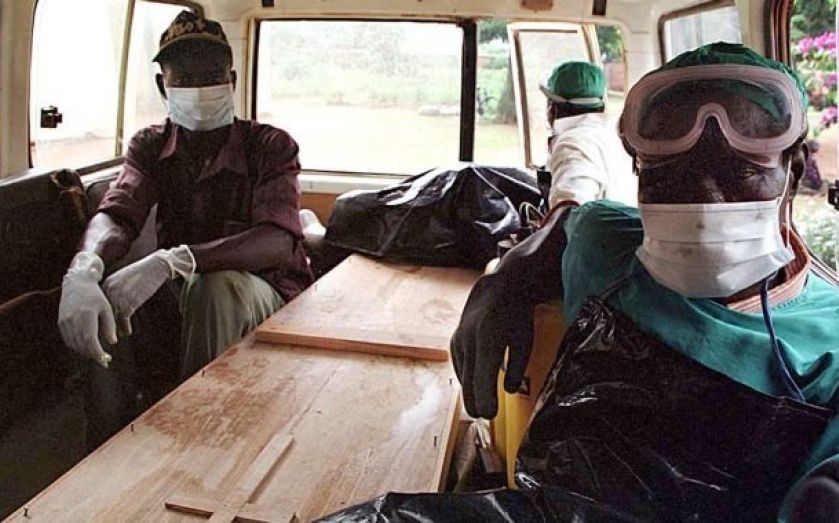| Updated:
Could the Ebola outbreak spread to the UK?

The outbreak of Ebola that is currently spreading through parts of west Africa has already killed more people than any previous outbreak of the disease.
The epidemic began in Guinea in March this year and has since spread to Sierra Leone and Liberia. According to figures from the World Health Organisation (WHO), it had infected 779 people and killed 481 as of 3 July.
There has been little sign of the disease subsiding, and medical charity Doctors Without Borders has described the situation as "out of control" after sending teams to the region.
But is there any chance of the epidemic spreading beyond Africa and up into Europe? Being just a plane ride away, there are growing concerns that the deadly virus could find its way over here.
“I think its perfectly possible that someone could arrive from an infected area on a plane, particularly from the capital of Guinea or Liberia where there have been a number of cases of the disease. Both have flight links with Europe,” virologist professor Derek Gatherer told City A.M.
Spread via contact with the bodily fluids of infected people, the virus attacks a person's internal organs and causes the progression from flu like symptoms to excessive vomiting and external bleeding.
The number of fatalities depends on the strain of the virus, but the mortality rate can sometimes reach as high as 90 per cent because there is currently no cure.
WHO says that increased movement across borders is contributing to the spread of the disease.
“The current Ebola outbreak has the potential to spread outside the affected countries and beyond the region if urgent and relevant containing measures are not put in place,” said WHO Africa director Dr. Luis Gomes Sambo at an emergency ministerial meeting in Ghana.
But professor Gatherer believes that, should the disease end up on our shores, we are well equipped to deal with it and prevent it spreading. “I don't think there's much chance that it would pose a significant danger to us here, even if someone did arrive with the disease,” he said.
We are prepared for dealing with this kind of disease: we have isolation facilities that would enable us to put people in quarantine and trace their contacts to let them know that they could be at risk. It's solvable by making sure that an infected person doesn’t pass it on to anyone else. Just look at how successfully we have kept rabies out of the UK for so long, even though it is endemic in France and much of continental Europe.
The worst outbreak in history
The Ebola virus first infected humans in 1976 in a village in the Democratic Republic of Congo, along the river Ebola.
There have been over 20 subsequent outbreaks in African countries, but the current one has already exceeded all others in severity.
The graph above compares outbreaks that have resulted in 100 or more deaths over the 38 year period. The only year that came close to 2014 was 1976, when there were 602 reported cases and 431 deaths. However, even this comparison should be made with caution according to professor Gatherer.
“The only time we have ever come close to this number of fatalities in the past was in 1976, and at that time it was caused by two different strains of the virus which means you can't consider it as one. The strain causing the current outbreak is the worst one of all,” he said.
“What happens next with this outbreak depends on events that take place over the next couple of months. I would advise anyone who comes back from a tropical country with a fever to go and see their doctor: there is very little way of distinguishing between Ebola and other illnesses at the beginning because of the common flu symptoms.”